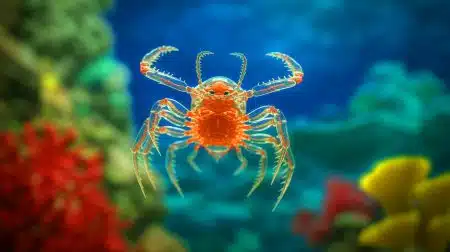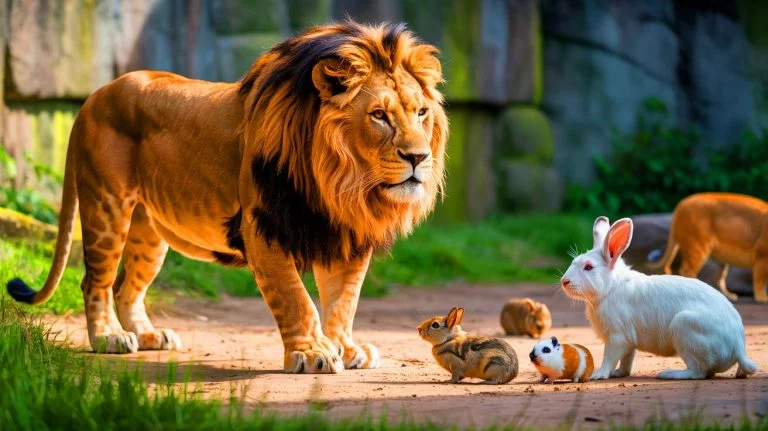| IN A NUTSHELL |
|
The recent initiative by a Danish zoo to invite pet owners to donate small, unwanted pets for predator consumption has sparked a global conversation. While many animal lovers express disdain at the idea of their cherished companions becoming part of the food chain, the zoo defends its policy as a commitment to animal welfare. This controversial practice raises questions about ethical zoo practices and the responsibility institutions have to mimic natural ecosystems.
The Zoo’s Controversial Request
A Danish zoo has drawn international attention with its request for pet owners to donate unwanted small pets, such as hens, rabbits, and guinea pigs, for consumption by its predators. This initiative is not just about feeding the animals; it’s an effort to replicate the natural diet of these carnivorous creatures. The zoo argues that offering prey animals with fur or feathers aligns with their mission to uphold animal welfare standards by simulating a more authentic food chain.
The zoo’s call to the public was made via a Facebook post, stating, “In zoos, we have a responsibility to imitate the animals’ natural food chain — for reasons of both animal welfare and professional integrity.” While this statement outlines their rationale, it has not shielded the institution from criticism. The ethical implications of using domestic pets as food, even if they are unwanted, remain a contentious topic.
Public Reaction and Ethical Concerns
The public response has been mixed, with some expressing outright horror at the idea. A comedic yet telling comment from a woman questioned if children could be donated when they become troublesome, to which the zoo humorously replied that only animals with feathers or fur are accepted. This exchange highlights the unease and moral questions surrounding the practice.
On the other hand, Pia Nielsen, the deputy director of the Aalborg Zoo, provided reassurance by explaining the commonality of this practice in Denmark. She emphasized the zoo’s intention to give predators as natural a diet as possible, suggesting that many guests appreciate the opportunity to contribute. This stance, however, does not dispel the underlying ethical concerns about the treatment and use of domesticated animals.
Understanding the Zoo’s Perspective
From the zoo’s viewpoint, providing a naturalistic diet to their predators is crucial. Nielsen reiterated that allowing animals that need to be euthanized to serve a purpose aligns with the zoo’s mission. This not only reduces waste but also enhances the well-being of the zoo’s carnivorous residents by providing them with food similar to what they would encounter in the wild.
Despite this rationale, the practice challenges traditional views on pet ownership and the sanctity of domestic animals. Many pet owners find it difficult to reconcile the idea of their pets being used in this manner, regardless of the zoo’s assurances of ethical practices. The discussion prompts broader questions about how we value different animal lives and the intersection of pet ownership and wildlife conservation.
Implications for Zoos Worldwide
The Danish zoo’s initiative may set a precedent or at least ignite discussions among zoos globally about how they procure food for their predators. The decision to accept unwanted pets as food sources could influence policies and practices in other institutions seeking to enhance animal welfare by mimicking natural diets.
Moreover, this practice could lead to a re-evaluation of how zoos engage with the public in terms of conservation and education. By involving communities in the feeding process, zoos might foster a greater understanding of wildlife ecology. However, they must tread carefully to maintain public trust and ensure ethical standards are upheld.
As zoos strive to balance animal welfare, ethical considerations, and public perception, the Danish zoo’s practice invites us to ponder: Are we ready to redefine the roles of domestic animals in wildlife conservation, and what ethical boundaries should guide these decisions?
Did you like it? 4.5/5 (28)







What were they thinking?! This is so unethical! 😡
Why would anyone donate their pet for this? It’s heartbreaking.
Is this even legal? Sounds like animal cruelty to me.
Thank you for shedding light on this controversial topic.
Would you donate your pet to a zoo? I can’t imagine doing that.
Honestly, this is a very practical solution. Animals need to eat! 🦁
The zoo should reconsider this practice. It’s too extreme.
Are there any other zoos doing this? Or is it just a Danish thing?
Can’t believe this is happening in 2023. Have we learned nothing?
Isn’t there a better way to provide a natural diet for predators?